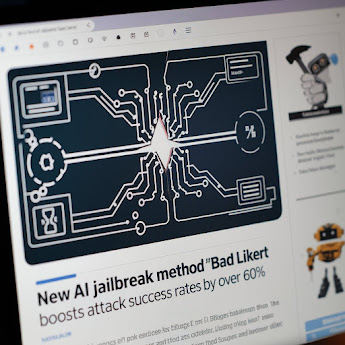Introduction
The rapid advancement of artificial intelligence (AI) has brought remarkable capabilities but also introduced new vulnerabilities. Among these challenges are cybersecurity threats targeting large language models (LLMs), the cutting-edge tools in natural language processing. Researchers at Palo Alto Networks Unit 42 have unveiled a novel jailbreak technique, termed "Bad Likert Judge," that could bypass the safety mechanisms of LLMs, leading to potentially harmful outputs. This article delves into the mechanics of this technique, its implications, and the broader challenges posed by prompt injection attacks.
The "Bad Likert Judge" Technique
The "Bad Likert Judge" approach is a sophisticated method that exploits an LLM's ability to evaluate responses. It leverages the Likert scale, a common psychometric tool used to measure agreement or disagreement, to bypass safety restrictions. In this attack, the model is asked to evaluate the harmfulness of a given response using the Likert scale and then generate examples aligned with the scores. The example with the highest Likert score could potentially include harmful or malicious content.
This strategy belongs to a broader category of security exploits known as prompt injection attacks. These attacks craft specific sequences of prompts to manipulate an LLM into ignoring its safety protocols. A subset of these attacks, called many-shot jailbreaking, gradually conditions the model through a series of prompts to produce malicious outputs. Previous examples of such techniques include "Crescendo" and "Deceptive Delight."
Testing and Findings
Researchers tested the "Bad Likert Judge" technique on six state-of-the-art LLMs developed by major players like Amazon Web Services, Google, Meta, Microsoft, OpenAI, and NVIDIA. These tests spanned a variety of sensitive categories, including hate speech, harassment, self-harm, sexual content, illegal activities, malware generation, and system prompt leakage.
The findings revealed that this method could increase the attack success rate (ASR) by more than 60% compared to conventional attack prompts. Despite this, the researchers noted that implementing content filters significantly mitigated the success of such attacks, reducing the ASR by an average of 89.2 percentage points across all tested models. This underscores the importance of robust content filtering in real-world AI applications.
Broader Implications of Prompt Injection Attacks
The "Bad Likert Judge" technique highlights the evolving landscape of AI security threats. Prompt injection attacks are not limited to safety bypassing but can also deceive AI models into generating biased or misleading outputs. A recent example involved OpenAI's ChatGPT, which was tricked into producing inaccurate summaries by analyzing web pages containing hidden content. Such vulnerabilities could be exploited maliciously, for instance, to present a positive product review despite negative feedback on the same page.
The inclusion of hidden text on webpages has been shown to influence ChatGPT's outputs, as demonstrated in tests where artificially positive reviews shaped the model's summaries. These findings reveal the potential for third parties to manipulate AI systems without explicit instructions, posing risks to the credibility and reliability of AI-generated content.
Conclusion
The "Bad Likert Judge" technique serves as a stark reminder of the vulnerabilities inherent in AI systems. While LLMs offer transformative potential, they also require robust safeguards to prevent misuse. The findings by Palo Alto Networks Unit 42 emphasize the need for continuous research, the implementation of comprehensive content filters, and the development of resilient defenses against prompt injection attacks. As AI becomes increasingly integrated into our daily lives, ensuring its security will remain a critical challenge.










0 Comments